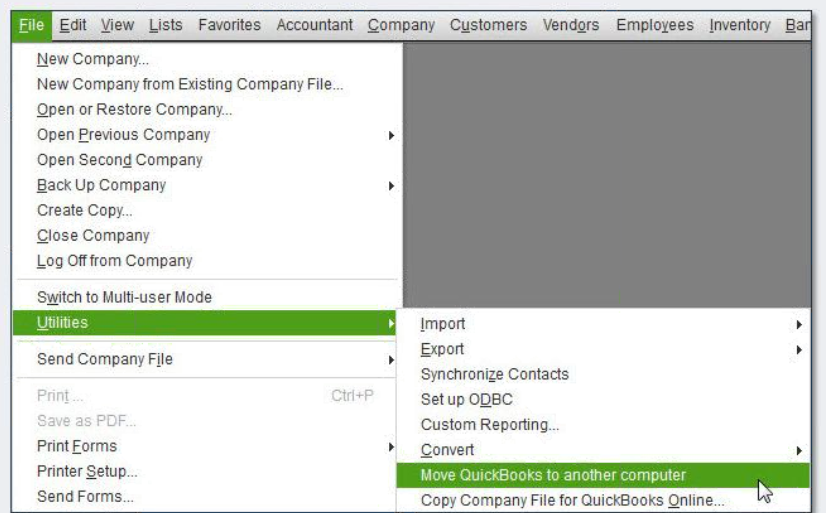by Zipbooks Admin
Here’s How Accounting Can Help Manage Disputes
Dispute management and accounting may have its distinct roles, but both rely on organization in order to make a business grow. Without organization, there is no knowledge of disputes, which in turn means no knowledge of revenue loss. That is what makes these roles more dependent with each other than most people think.
Here, we are going to explain how disputes can affect accounting, and vice versa. And to better illustrate this point, we are going to list some reason codes that can affect your balance sheet for the next quarter. While we will explain what compelling evidence you will need to respond these disputes, but we are also going to explain how your accounting skills can prevent these disputes from being filed in the first place. But first, let me first answer an important question:
How Can Accounting Help Dispute Management?
Accounting and dispute management can provide great insight on customers’ purchasing behavior. Disputes can explain how (and even why) businesses are seeing revenue loss on their balance sheet. And when businesses have their expenses, transactions and shipping invoices all organized in one data source, they will be able to present this evidence more efficiently. Moreover, that allows them to resolve disputes much faster than anticipated.
Here is how you can see the relation between disputes and accounting from a ‘cause-effect’ perspective. Disputes that issued chargebacks help explain some of the revenue loss earned by the merchant. You will have a chance to reduce the revenue loss of chargebacks by making some adjustments to your current dispute management methods. Some of this can include fraud filters, customer service and response techniques. That being said, here are some disputes that can affect your revenue stream.
Duplicate Processing
Duplicate processing occurs when merchants charged customers more than once without their consent. This type of dispute mainly originates from technical errors, such as faulty point-of-sale (POS) terminals. But that invalid charge poses a risk in revenue loss when the customer decides to file a dispute. Notice that I said when, not if they decide to file a dispute. The reason codes that are tied a duplicate processing disputes are American Express P08, Mastercard 4834 and Visa 12.6.
Now, ZipBooks customers will have an advantage to learn from these disputes, thanks to its Smart Features. By understanding what transactions are associated to duplicate processing, you will gain a better understanding of how to prevent this dispute from being filed in the first place.
The closest alternative to Smart Features is keeping a clear record of all transactions and its processing stages (i.e., pending vs. verified). You will also need to use some sort of codebook that distinguishes where and when duplicate processing took place. This is where your organization skills really pay off.
Evidence You Can Include In Your Response
Duplicate processing is easy to verify. Either the merchant thoroughly process the transaction once or there was an unfortunate oversight during the point of sale. Here is some evidence you can provide that shows the former, not the latter:
- All relevant documents that show the customer was charged once for the agreed amount. Receipts are one great example.
- If you issued a refund before the dispute was filed, provide documents that show the refund was issued and transferred to the customer’s account.
MasterCard has transaction modifiers for reason code 4834. This just helps specify what kind of evidence is needed to disprove a dispute. For duplicate processing, there is a chance that the dispute will have one of the following modifiers:
Incorrect Transaction Amount
The customer may had emphasized that the disputed transaction amount is incorrect. If so, just make sure that you provide either:
- Billing information that shows the accurate transaction amount has been processed; OR
- Documents that show the dispute is invalid because the issuing bank failed to provide the original ARD in DE 72 (Data Record)
Unreasonable Amount
This modifier is used when the customer claims the disputed amount is not only incorrect, but unreasonable. The answer to how unreasonable will depend how the customer framed his or her message. But you can disprove this dispute with:
- Relevant documents that show the customer agreed to the dispute amount. You can also show that the transaction did not exceed the agreed amount in any way, shape or form.
Recurring Billing
Subscription billing has its perks. When it is executed properly, it can be increasingly convenient for customers and merchants alike. But that convenience can unfortunately have customers to forget to cancel their subscription. Or in some cases, it makes them forget they have an active subscription in the first place. That last recurring payment may be the catalyst that filed a dispute. Recurring billing will be tied to American Express C28, Discover AP, MasterCard 4841 and Visa 13.2.
One way to prevent these disputes (and its related chargebacks) is with clear, upfront descriptions about your recurring billing process. This includes things like emails that alert customers about an incoming charge, and product and merchant descriptors that show what initiated the charge. Fortunately, ZipBooks allows businesses to customize their invoices in ways that make recurring billing a lot more transparent.
Evidence You Can Include In Your Response
No matter what kind of good or service you provide, your store policy is the primary piece of evidence to disprove this dispute. You will need to highlight exactly where you outline your recurring billing process and cancellation policy. You will be in good standing if this text is clearly visible and easy to read.
There are other compelling evidence you can provide to strengthen your response. This can include:
- A copy of your cancellation policy. Screenshots are appropriate, just as long as the reviewer can clearly read your cancellation procedures.
- Documents that showed you already resolved the dispute with a refund
MasterCard also has transaction modifiers for recurring billing disputes. In fact, the reason code mentioned above (4841) specifically refers to digital goods and services. Another reason code (4853) has a more generic reference for physical goods and services. For example, reason code 4853 will affect businesses like subscription box companies while 4841 will affect businesses in digital streaming services.
When it comes to digital goods and services, you can provide any of the following items. But free feel to include more evidence if needed:
- Any evidence that shows the customer accessed the digital goods and services. This can include:
- Their IP address
- Timestamps associated to his or her profile
- Server or activity logs
Late Presentment
Late presentment can have different meanings while referring to the same thing: the merchant was late for…something. In this scenario, this dispute claims the merchant was late in fulfilling the following requirements:
- All transactional data was not processed within a certain time frame; OR
- The merchant was late in submitting all transactional data to the issuing bank; OR
- The merchant was late in submitting all transactional data to the card network
The time frames are established by the card networks, and issuing banks may set additional time frames place in order to ensure transactions are efficiently processed on time. For example, Visa 12.1 is a late presentment dispute that claims either:
- The transaction date is more than 180 calendar days before the processing date; OR
- The transaction was not processed within the time limit, and the account number was not in good standing on the dispute processing date
Manual labor can only move a business so far until automation is required. Late presentments are another example that can be resolved with automated tools that keeps track of everything about a transaction.
The reason codes tied to late presentment disputes are American Express P07, Discover LP, MasterCard 4842 and Visa 12.1.
Evidence You Can Include In Your Response
It is all about showing you had processed the transaction on time, and any dispute that claims otherwise is invalid. Some evidence can include:
- Documents that provide timestamps of when the transaction was processed
- Supplemental information that show the transaction data went to all the intermediaries involved, which include the payment processor, payment gateway and the issuing bank
Shipping
All consumer disputes have a reason code that specifically refers to a shipping issue. Shipping expenses are great pieces of evidence to prove that a product was shipped. And its associated invoices can prove your carrier successfully delivered the disputed product. Consumer disputes with an emphasis on shipping are tied to Discover RG, MasterCard 4855 and Visa 13.1.
Well-managed expenses is an essential cure to prevent shipping issues, let alone consumer disputes. It is even more effective when you have the tools to automate and aggregate receipts, expenses and vendor information all in one place.
Evidence You Can Include In Your Response
The type of evidence you provide will depend on the type of goods and services are being disputed. For physical goods, you can provide:
- The tracking number
- The shipping carrier’s invoice that it shows a successful delivery
- The shipping address that the customer provided, and relevant documents that show the goods arrived at that address
- If the dispute claims the goods arrived late, provide relevant documents that show the goods arrive on time.
- If the dispute was filed before the goods arrived at the shipping address, provide relevant documents that show the dispute is invalid.
Credit / Debit Issues
It is never a good feeling when a transaction does not go as planned. And processing a transaction as credit, rather than debit (and vice versa) can issue severe chargebacks. This is another processing error that can easily disprove a dispute or show that the merchant was at fault. It will all depend on how well you record and organize your transactions. The reason codes that allege credit-debit issues are American Express P03, American Express P04, and Discover CD.
There may be disputes that claim credit was not processed, and that refers to another set of reason codes. These codes are American Express C02, Discover RN2, MasterCard 4860 and Visa 13.6.
Like late presentment, credit-debit issues are an opportunity to learn how this error occurred. When you make the appropriate changes, you can expect a decline in revenue loss from these types of disputes. And seeing growth on your balance sheet is always a good sign.
Evidence You Can Include In Your Response
We will first explain how to disprove credit-debit issues. You will be able to do so with the following evidence:
- Relevant documentation that provides the charge was submitted under the correct form of payment
- You can also prove that a recent credit had offset the charge, and it was thoroughly processed. The same applies if the customer claims it was not processed as a debit transaction.
There are different types of credit-not-processed disputes. In some cases, the customer may already be in possession of the good that is tied to this dispute. You can prove the dispute is invalid if the customer made no attempt to return the good for the disputed credit. Otherwise, you can have your evidence show the following elements:
- If the card was declined, either directly by you or during processing, explain why the customer’s card was declined during the transaction
- Provide relevant documents that show you resolved the dispute before it was officially filed. Some examples include the customer accepting a refund, a future discount or loyalty membership (if applicable)
If you are having problems with managing these disputes, let’s talk about it in the comments section below. I’m sure we will find a balance between accounting and dispute management.
Scott Stone is the Chief Marketing Officer at Chargeback, the industry-leading solution for automated dispute management and real-time resolution.





